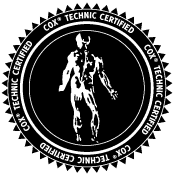Frozen Shoulder and Neck Pain Connection of Pain and Chiropractic Relief
Frozen shoulder, medically known as adhesive capsulitis, is a condition characterized by shoulder pain and stiffness that can significantly disrupt your daily activities. When this condition is related to cervical spinal stenosis, the discomfort can be even more demanding. Fortunately, chiropractic care has a viable solution to manage and alleviate these symptoms.
Understanding the Connection: Cervical Spine & Shoulder
What is Cervical Spinal Stenosis? Cervical spinal stenosis is an issue in which the spaces within the spine narrow, putting pressure on the nerves that move through the spine. This can lead to indicators such as neck pain, numbness, tingling, and weakness affecting the shoulders and arms.
How Does It Cause Frozen Shoulder? The connection between cervical spinal stenosis and frozen shoulder lies in the joint nerve pathways. When the nerves in the cervical region are compressed, referred pain and restricted movement in the shoulder may result. This is reinforced by research, including a study by Russo et al., which found a significant link between cervical foraminal stenosis and adhesive capsulitis. (1) Toronto chiropractic care presents itself for relief!
Benefits of Chiropractic Care
Chiropractic care focuses on diagnosing and treating musculoskeletal disorders, particularly those concerning the spine. Here is how it can benefit patients with frozen shoulder associated with cervical spinal stenosis:
Cervical Spine Stenosis Relief Chiropractors use a variety of techniques to relieve the symptoms of cervical spinal stenosis. One such technique is flexion distraction manipulation, which has been shown to effectively reduce foraminal stenosis and radiculopathy. (2) This method assists in decompressing the spinal discs and widen the spaces within the spine, alleviating pressure on the nerves.
Cervical Spine Disc Herniation Foraminal Narrowing and Frozen Shoulder Pain Relief Chiropractic adjustments can also directly address the shoulder. Techniques like the Cox® cervical flexion-distraction technique have proven effective in dealing with conditions like disc herniation with foraminal narrowing. (3) These adjustments help restore mobility to the shoulder joint and lower pain.
Steps to Effective Chiropractic Treatment
The first step in chiropractic care is a thorough assessment to identify the root cause of symptoms. This includes physical examinations and imaging studies, if necessary. Based on the diagnosis, a chiropractor will create a personalized treatment plan. This plan may include spinal adjustments, physical therapy exercises, and lifestyle recommendations to promote overall spinal health. Regular monitoring and treatments make sure that progress is being made and that any necessary modifications to the treatment plan are employed. Further, numerous studies support the efficacy of chiropractic care for conditions like cervical spinal stenosis and thereby potentially frozen shoulder. For example, Wu et al. (4) presented the cross-talk between shoulder and neck pain, further assisting the role of Toronto chiropractic care in overseeing these interconnected conditions.
CONTACT Yorkville Chiropractic and Wellness Centre
Listen to this PODCAST with Dr. Sarah Murrow on The Back Doctors Podcast with Dr. Michael Johnson as she describes a case of neck and shoulder pain relieved and managed with The Cox® Technic System of Spinal Pain Management.
If you are suffering with the dual challenges of cervical spinal stenosis and frozen shoulder, Toronto chiropractic care could be the answer you need. By getting to the root causes of your pain and providing targeted relief, your Toronto chiropractor may well help you regain mobility and improve your quality of life. Set up a consultation with Yorkville Chiropractic and Wellness Centre today and begin your journey to pain relief!


